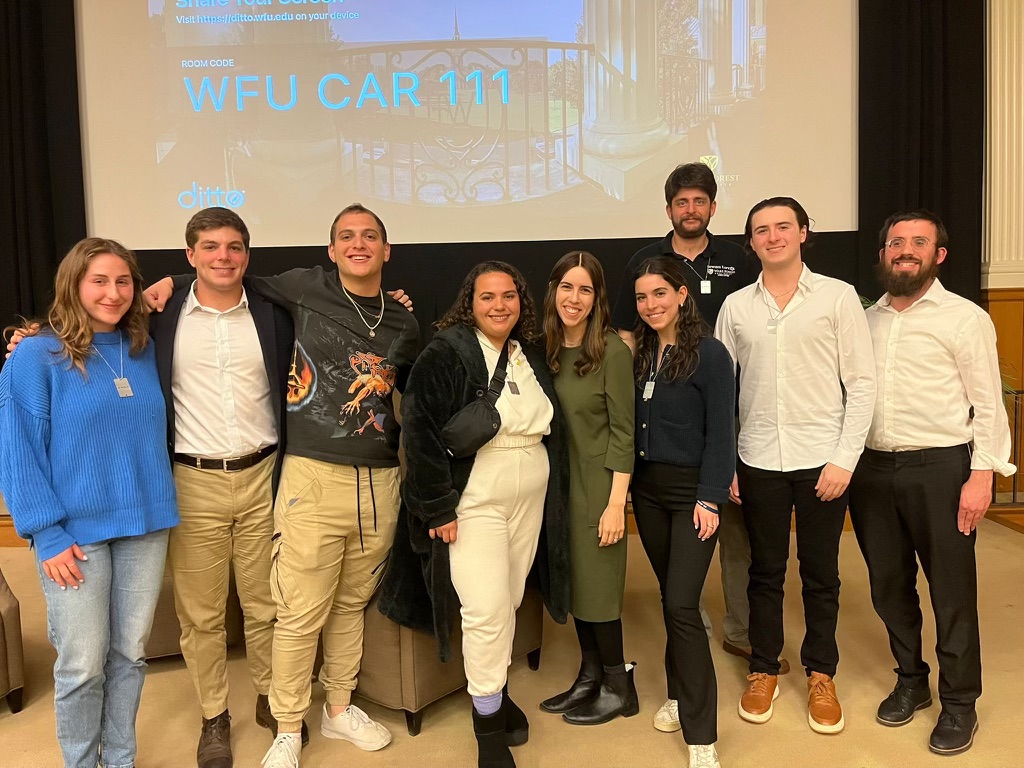You hear it all the time as an undergrad: “It’s not alcoholism until you graduate.” But students recovering from substance abuse know that reality comes far sooner.
“Addiction doesn’t discriminate, and it doesn’t wait for people,” said senior Jack Lefelar, a Recovery Active Deac, or someone recovering from substance abuse at Wake Forest.
But until this past year, students recovering from alcohol or drug addiction were expected to rely solely on outside resources and support networks like Alcoholics Anonymous to guide their journeys, which was not enough for students in recovery hoping to return to school. Now, the Wake Forest Collegiate Recovery Center has completely changed this.
Under the guidance of Peter Rives, assistant director of Wellbeing — Alcohol and Substance Abuse Prevention, a few founding students were able to establish their own collegiate recovery center (CRC) at Wake Forest last fall — and it has since flourished.
The CRC’s missions are to provide this community of recovering students with a support network on campus and to raise awareness for this identity group. A large part of raising awareness involves an effort to change the campus environment in order to make it less hostile for recovery according to Rives.
“Being sober in a collegiate setting after getting sober is incredibly difficult,” said alumnus and inaugural CRC member Griffin O’Brien. “It makes you feel like an outsider, but having a support network and community of like-minded individuals eases the anxiety of doing so.”
At Wake Forest, students in recovery have the option to make their recovery plan unique with a mixture of outside resources and support from the CRC.
Even though off-campus services like Alcoholics Anonymous and Narcotics Anonymous can make for a comprehensive recovery plan for some, the importance of a student group on campus is undeniable for others. Many recovering high school students even choose their undergraduate school based on whether or not there is a recovery group on campus, according to Rives.
For students like Lefelar who spent time away from school to begin recovering, having a campus support group like this was crucial for their return.
“It was very integral,” Lefelar said. “It provided me with an immediate community of people who shared and understood my experiences, which is especially important at Wake Forest.”
The dominant work-hard, play-hard culture of Wake Forest has proven to be a hostile environment for some on the path of recovery. Rives has seen his fair share of binge-drinkers, who perhaps behave badly and draw concern from their friends but are not prone to addiction.
“There are some who can switch that off,” Rives said. “But then there are those who drew that genetic short straw and can’t turn it off.”
For those who can’t “turn it off,” the CRC is there to offer a network of support, a space away from the rest of campus and the chance to build lasting relationships with other students going through similar things.
Currently, the CRC has nine fully active members. Because it operates as an independent recovery organization that is not a chapter affiliate of any larger organization, its members have the flexibility to really make it their own, says Lefelar.
“Even if we are down to two students, I know the program will be worth it for those people,” Rives said.
Some of their programming, outside of twice weekly meetings for its members, includes planning its new offering: sober tailgates. For students who have ever felt alienated by traditional tailgates before football games, the new sober tent provides a space for people who have not been drinking to get ready for the game. And it’s catching on — more than 100 people turned out at the sober tent at the first tailgate of the year.
The CRC’s RAD (Recovery Active Deacs) campaign has also made serious headway for its members in securing a dedicatedly sober theme housing block in North Campus Apartments, which Lefelar says has enabled him to be even more immersed in his own recovery.
“My life is about recovery, and this is a huge part of that for me,” Lefelar said.













